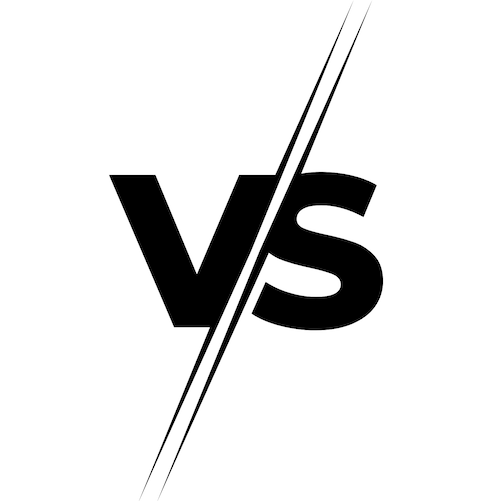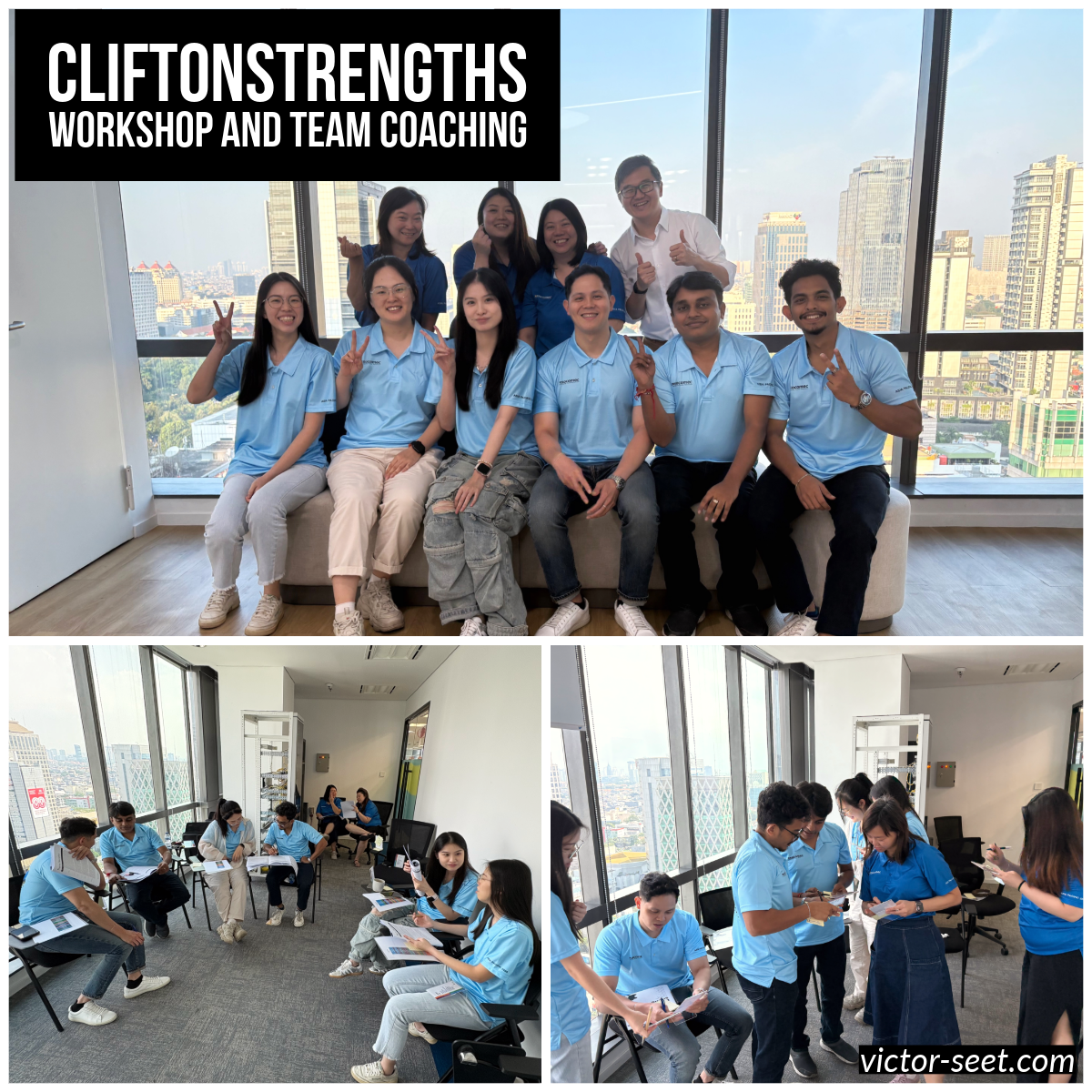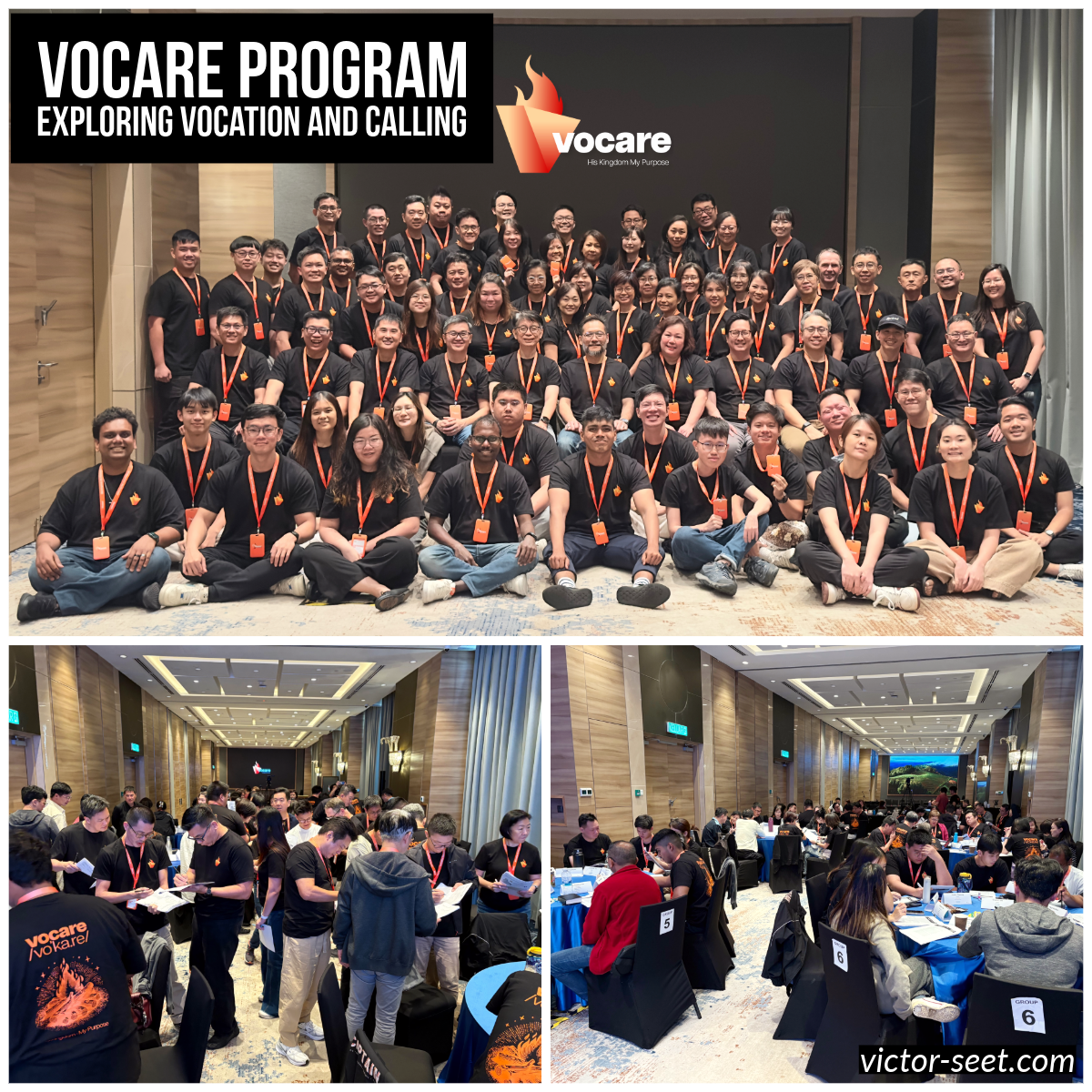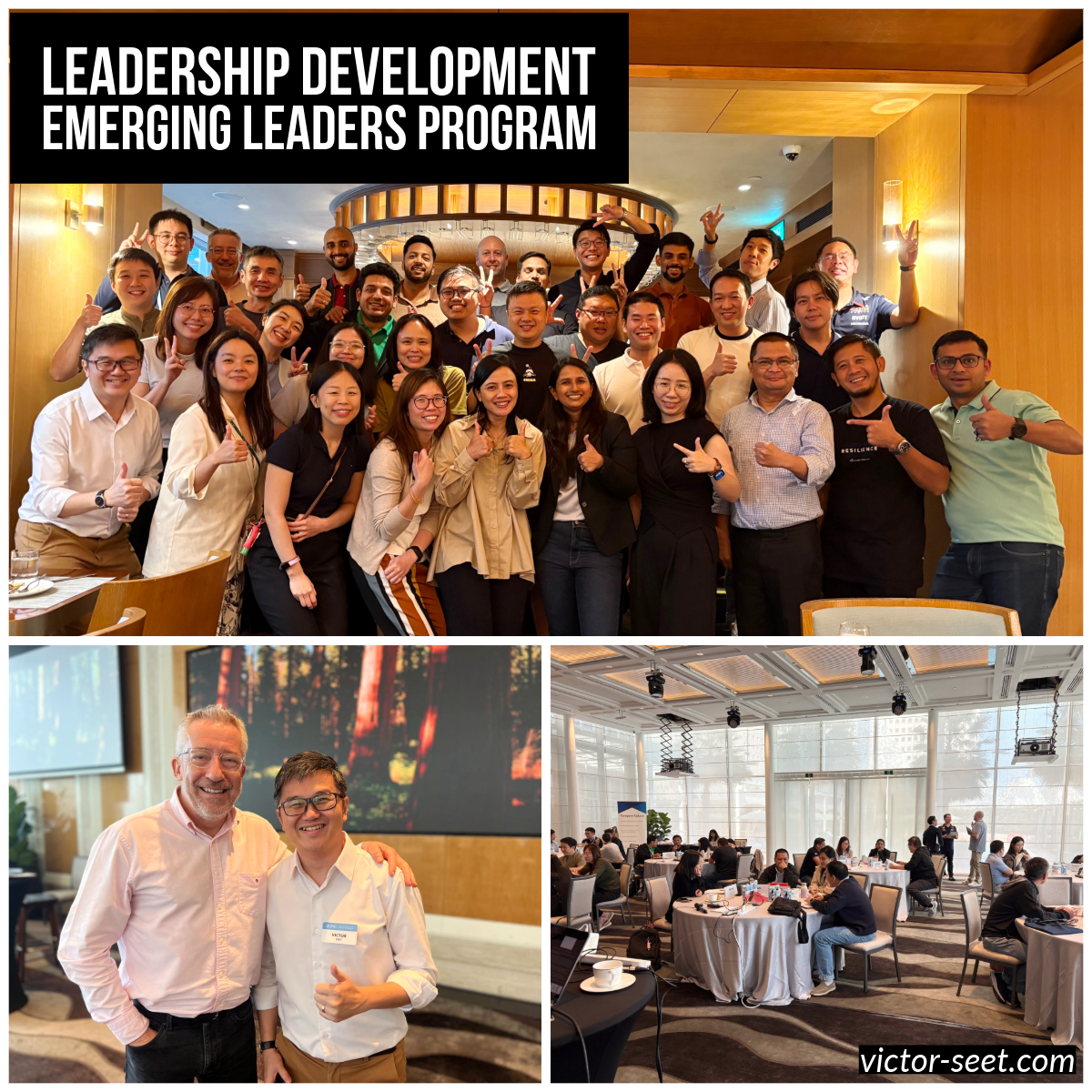Emerging Leadership Program - Coaching and Talent Development
Last Dance 🥳🥹
1 Global leadershipdevelopment program - US, EMEA, APAC
APAC - 16 cohorts in 2 years, 500+ leaders
Our team was responsible for the last day of the 4 days leadership program.
The key deliverable on Day 4?
➡️WHAT - Embody the learnings!
➡️WHY - Live out the Expectationsof Leaders defined by the organization.
➡️HOW - Leadership labs, Coaching practices and Difficult conversations.
Finished the last cohort this week and there was both huge gratitude and a lot of sadness.
My Highlights 🙏
1. Being part of a global team from SmartfulWorks LLC and delivering the program outcomes consistently across US, EMEA and Asia Pacific. Thank you Jenn Giordano, M.A., Ed. M., ACC and Ryan Soares, ACC for your kindness and belief in the AP team.
2. An amazing all 🌟 AP team with Damien O’Malley, Eya Pagdanganan, and Alice Chia. Our strengths complement each other.
3. Observing, listening and being in action is my key mode of learning. I have gained so much from the cross-cultural interactions, practicing my listening skills while interacting with participants from China, India, Australia, Papua New Guinea, Korea, Indonesia, Malaysia, Thailand, Philippines and Singapore.
My takeaways 💡after 16 runs:
1. Intellectual understanding appeals to those who prioritise cognitive intelligence. Body and emotional intelligence (learning through our body and emotions) are separate. The leadership labs clearly show the gap between conceptual self-awareness and embodied self-awareness.
2. Showing up as leaders has little correlation to where we are on the organizational chart or our leadership roles. It has more correlation with how we show up as humans.
3. Working across cultures amplify a core leadership skill - the ability to listen deeply beyond words. So much miscommunication happens when we listen to respond rather than listen to understand.
4. To navigate tensions or polarities is to first practice seeing the dynamics. That is increasingly a core leadership skill.
5. A Small door knob open a Big door. Transformation can happen when we consistently apply little tweaks to our habits.
Definitely a huge personal milestone and very thankful to God for this experience.
Looking forward to sharing these insights in the future.
CliftonStrengths Leadership for Singapore Non-Profit Senior Leaders
𝐈𝐭 𝐢𝐬 𝐦𝐨𝐫𝐞 𝐛𝐥𝐞𝐬𝐬𝐞𝐝 𝐭𝐨 𝐠𝐢𝐯𝐞 𝐭𝐡𝐚𝐧 𝐭𝐨 𝐫𝐞𝐜𝐞𝐢𝐯𝐞.
Spent a day with a group of very passionate senior leaders from the non-profit sector in a workshop setting.
It was very life-giving.
While I was there to give (conduct a leadership session), I felt I receive so much more.
There was the usual CliftonStrengths content but it was more about the context. Spending time with this group of senior leaders who, at the core, were humble, down to earth and generous in spirit sparked something within me.
Listening to their stories, insights, struggles and engaging with them both in the workshop and during lunch was so special. When one is in the presence of giants, somehow the spirit within can be so easily stirred up. These people made me feel seen and heard.
Had the extra joy of connecting back with Brian Chan, an old friend.
I am very glad that these people are change makers in our Singapore society. May God bless and multiply the works of their hands and protect their soul and spirit. They carry such a huge load and the work done never seemed enough.
Christian Chao Arthur Ling Sandra Leong 梁雪儿 Renee Tan Mary Ng Soong Kiang Tay Karthik J Ernest Lee, Jason Lee, Juliana Foo, Muhammad Ashik
CliftonStrengths in Jakarta Indoneisa - Team Coaching & Workshop for Socomec
𝐖𝐡𝐚𝐭’𝐬 𝐲𝐨𝐮𝐫 “𝐒𝐔𝐏𝐄𝐑?”
In many computer games including Pokémon or Brawl Stars, characters often have the ability to power up and finally unleash their “SUPER”. In some sense, this idea reflects our own talents as well.
I’m a catalyst. I enjoy helping participants discover their talents, find the spark they need in a workshop setting. I do that on a regular basis and some are large groups.
My “SUPER” is different. 🌟
In some sense, the unlocking requires me to work with a smaller group (not larger than 15pax). I combine facilitation with teamcoaching. I often feel like this is when my “SUPER” is unleashed. 💥
With smaller groups, I have time to go deeper. I can coach and I can call out others’ “SUPER”. I love seeing the delight and joy when I do that.
I was very energized when I travelled from Singapore to Jakarta. This CliftonStrengths session was for a selected group of six individuals from different countries. Participants were from Singapore, Sri Lanka, India and China.
The individuals were coming together for the first time to connect face to face and to work on a specific project. My goal was to help them understand their talents and to use them collectively and collaboratively.
I had great fun! 🤩
CliftonStrengths for Career and Vocation Exploration - Vocare
𝐄𝐱𝐩𝐥𝐨𝐫𝐢𝐧𝐠 𝐕𝐨𝐜𝐚𝐭𝐢𝐨𝐧 𝐚𝐧𝐝 𝐂𝐚𝐥𝐥𝐢𝐧𝐠
Over a decade ago, I left the pastoral vocation. I remembered vividly how I stepped into it in my twenties.
Vocare was a program created and designed by Anglican Diocese of Singapore to facilitate those interested to explore the full time #calling. Whether the role is pastoral, creative, caregiving, administrative or teaching in nature, it was a time for the participants to listen, reflect and ask questions.
I was invited to travel from Singapore to Johor Bahru, Malaysia to facilitate a CliftonStrengths session to help each participant discover their #strengths and understand how they can be useful for ministry work.
The session was highly customized.
✅ Learn the Language
✅ Discover Your Cutting Edge
✅ Connect Cutting Edge to Specific Ministry Work.
Got to share some personal stories and grateful that the opportunity to prepare and share brought back many memories.
I deeply respect the vocational work of religious workers. These people built our communities and societies more than they are given credit for.
My best wishes to each participant to take each step by faith and be #courageous in the road ahead.
Leadership Team Coaching with Experiential Learning Labs
3 hours of action based leadership labs focusing on team decision making, collaboration and communication. As a coach, my goal is to facilitate and observe the behaviours from the different leaders and to give them feedback.
Thoroughly enjoy such activities and the coaching of the individuals. It fully satisfies my Activator, Communication and Command talent themes!
Emerging Leadership Program - Coaching skills with Corestrengths
𝐒𝐭𝐞𝐩𝐩𝐢𝐧𝐠 𝐨𝐮𝐭 𝐨𝐟 𝐚𝐮𝐭𝐨𝐩𝐢𝐥𝐨𝐭 𝐦𝐨𝐝𝐞
Leadership is developing awareness of our autopilot mode especially in how we show up at work and under conflicts. Awareness practice allows for conscious and adaptive behaviors to be better leaders in the long run.
This was a key learning for quite a few of the participants in the 4.5 days emerging leadership program that finished before the National day weekend.
Participants came from different APAC countries including 🇨🇳 China, 🇮🇳 India, 🇹🇭 Thailand, 🇮🇩 Indonesia, 🇲🇾 Malaysia and 🇸🇬 Singapore.
One of the themes was focused on developing selfawareness and selfmanagement as a key leadership competency.
We did a lot of coaching conversations to practice empathy🫶🏼 and at the same time holding people accountable for their performance 📊
Had another great time of partnership and co-facilitating with Damien O'Malley. His humor and strong people engagement complements my direct and laser coaching style with candid feedback.
How are we like when we are on autopilot mode as leaders, parents, spouse etc?Inviting you to reflect together.
##leadershipdevelopment ##performancemanagement ##toughconversations












